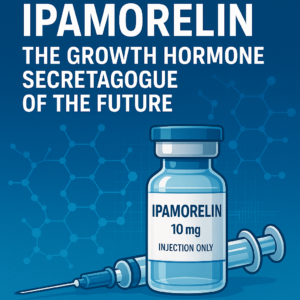Understanding Kratom
Kratom, scientifically known as Mitragyna speciosa, has gained attention for its potential medicinal properties. Native to Southeast Asia, this plant has been used for centuries in traditional medicine. In recent years, people have turned to kratom as a possible remedy for a variety of ailments, particularly for mood disorders such as depression.
Some proponents claim that kratom can alleviate the symptoms of depression. Many individuals assert that it helps them feel more energetic, more focused, and even happier. However, the scientific community remains divided on whether kratom actually delivers on these claims. To understand its effects better, let’s take a closer look at what the research says about kratom and depression.
What is Kratom?
Kratom is derived from the leaves of the kratom tree. When consumed, these leaves can yield various effects ranging from stimulation to sedation, depending on the dosage and strain. Users often categorize kratom into three main strains: red, green, and white. Each strain has unique properties and potential benefits, making kratom appealing to various users.
- Red Vein Kratom: This strain is known for its calming effects. Some users report relief from anxiety and enhanced mood.
- Green Vein Kratom: Considered a middle ground, it offers a blend of both stimulating and soothing effects, potentially helping with focus and relaxation.
- White Vein Kratom: Often lauded for its energizing properties, it’s popular among those looking to boost their productivity and mood.
While kratom presents potential benefits, it is essential to approach it cautiously. The lack of substantial clinical research raises questions about its safety and efficacy.
How Does Kratom Work?
Kratom interacts with the body’s opioid receptors. It contains compounds called alkaloids, primarily mitragynine and 7-hydroxymitragynine. These compounds affect mood and perception, which is why users often report feelings of well-being and even euphoria. However, because it resembles opioids in its action, concerns about addiction and side effects loom large in discussions about kratom.
When mitragynine binds to opioid receptors, it can reduce pain and create a sense of pleasure. This might explain why some individuals use kratom for mood elevation. Yet, the nuances behind its interaction with receptors are not fully understood. Some researchers emphasize that more detailed studies are necessary to unpack the complexities of kratom’s effects on mental health.
Kratom and Depression: What the Studies Say
Research on kratom’s effects on depression remains limited. However, some studies have begun to shed light on its potential benefits and risks. A significant proportion of kratom users report using it to combat depression, but scientific backing is sparse and often anecdotal.
Review of Research Studies
-
Kratom Use and Mental Health
A cross-sectional study published in 2021 examined kratom use among individuals with mood disorders. Researchers found that a considerable number of participants cited improvements in their depressive symptoms after using kratom. However, the majority of users relied on self-reported data, which introduces bias.
-
Surveys and User Reports
Another study surveyed kratom users about their experiences. Many reported that they felt a significant decrease in depressive symptoms after using kratom, often attributing this effect to the plant’s mood-enhancing properties. Nevertheless, these findings must be interpreted cautiously due to the lack of a control group and reliance on self-reporting.
-
Potential Risks and Side Effects
Most studies also highlighted the possible downsides of kratom use, including dependency and withdrawal symptoms. While some users may benefit, the potential for misuse raises red flags that cannot be ignored.
Personal Testimonials: A Mixed Bag
User experiences with kratom for depression reveal a wide spectrum of outcomes. Some individuals share positive stories, claiming that kratom has become an essential part of their mental health management. For them, it serves as an effective alternative to conventional anti-depressants.
Conversely, many individuals warn against the reliance on kratom. They recount instances of heightened anxiety or depressive episodes after usage. These starkly different experiences illustrate the need for more extensive research. They also emphasize that what works for one person may not work for another.
The Importance of Dosage
Dosage plays a crucial role in how kratom affects mental health. Low doses may yield stimulating effects, while higher doses tend to produce sedative and calming effects. Users often navigate a fine line; taking too little might not alleviate symptoms, while taking too much could lead to unwanted side effects.
Recommended Dosage Guidelines
| Dosage Range | Effects |
|---|---|
| 1-5 grams | Mild effects, stimulation |
| 5-10 grams | Balanced effects, pain relief |
| 10+ grams | Calming effects, sedation |
Because individual responses vary, it’s vital to start with a low dose. Gradually increasing can help users identify their optimal amount. However, consulting a healthcare professional is essential before introducing any new substance into your routine.
Are There Alternatives to Kratom?
While kratom may offer some promise, various alternative treatments exist for depression. Traditional options include medications, therapy, and lifestyle changes. Exploring these alternatives may provide a more solid foundation for managing depressive symptoms.
Conventional Treatments
-
Medications
Antidepressants are a common treatment for severe depression. They work by balancing chemicals in the brain. Types of antidepressants include SSRIs, SNRIs, and atypical antidepressants.
-
Therapeutic Approaches
Cognitive Behavioral Therapy (CBT) focuses on changing negative thought patterns. It has shown considerable success in managing depressive symptoms.
-
Lifestyle Changes
Exercise, diet, and sleep have profound effects on mental health. Regular physical activity can boost endorphins and alleviate depressive symptoms.
Natural Remedies
Natural remedies such as herbal supplements, omega-3 fatty acids, and mindfulness techniques can also be effective. While kratom is gaining attention, exploring these alternatives may lead to safer, well-researched options.
The Future of Kratom Research
As interest in kratom continues to grow, so does the call for more rigorous scientific investigation. Researchers aim to evaluate its potential benefits and risks. Understanding kratom’s mechanisms could lead to breakthroughs in treating various mood disorders.
The ongoing debate around kratom also highlights the need for regulation. Ensuring product quality and safety is crucial for anyone considering its use. Advocating for clearer guidelines can protect consumers and contribute to responsible kratom consumption.
Conclusion: A Balanced Perspective
Kratom may hold promise for alleviating symptoms of depression for some individuals. Yet, the scientific evidence remains inconclusive. The anecdotal reports from users reveal both positive outcomes and potential risks. Thus, a balanced approach is essential when considering kratom as a remedy.
Before using kratom or any new treatment for depression, consulting a healthcare professional is wise. They can provide tailored advice based on individual circumstances and medical history. Ultimately, making informed decisions about mental health can pave the way for a healthier, happier life.
Frequently Asked Questions (FAQs)
-
Can kratom replace traditional antidepressants?
No, kratom should not replace prescribed medications. Always consult a healthcare provider for advice. -
Is kratom legal everywhere?
Kratom’s legality varies by location. Check local laws before using it. -
Are there side effects of kratom?
Yes, potential side effects include nausea, dizziness, and dependency. -
How long does kratom’s effect last?
The effects of kratom can last from 2 to 6 hours, depending on dosage and strain. -
Can I take kratom with other medications?
This can be risky. Always consult a healthcare provider. -
Is kratom safe for everyone?
No, not everyone should use kratom, especially those with certain health conditions. -
What is the best strain of kratom for depression?
Many prefer red vein kratom for its calming effects, but individual responses vary. -
Will kratom cause withdrawal symptoms?
Some users report withdrawal symptoms after regular use, including fatigue and mood swings. -
How do I find a reliable kratom vendor?
Look for vendors that provide lab-tested products and transparent sourcing. -
Are there studies on kratom and mental health?
Yes, while some studies suggest potential benefits, more rigorous research is necessary.
References
- National Institute on Drug Abuse (NIDA) – Kratom: Is it Safe?
- Journal of Psychoactive Drugs (2021) – Kratom Use and Mental Health
- Substance Abuse and Mental Health Services Administration (SAMHSA) – Kratom: Final Report
- Addictive Behaviors Reports (2020) – Kratom: Survey of Use Patterns
This comprehensive look into kratom and depression highlights both the potential benefits and risks. As always, informed decisions backed by research lead to safer outcomes.







